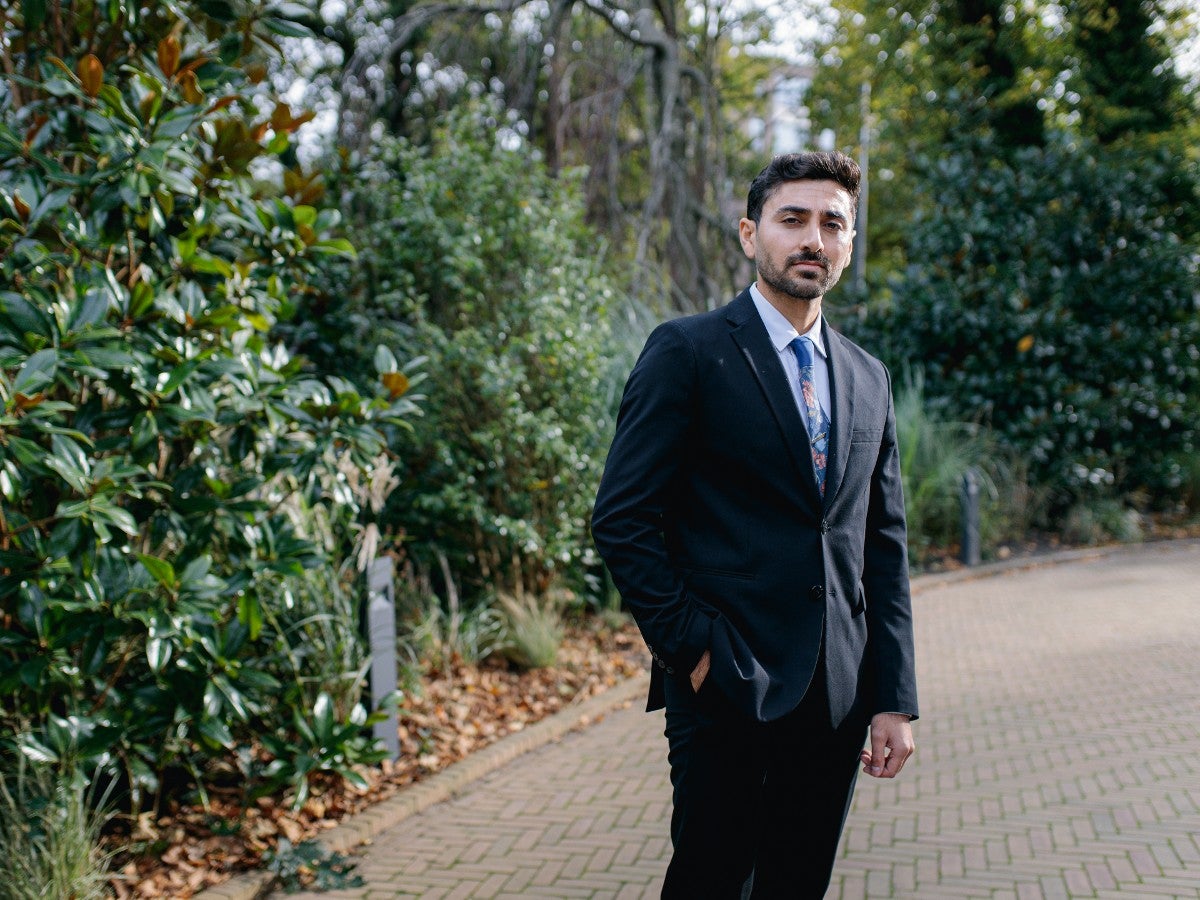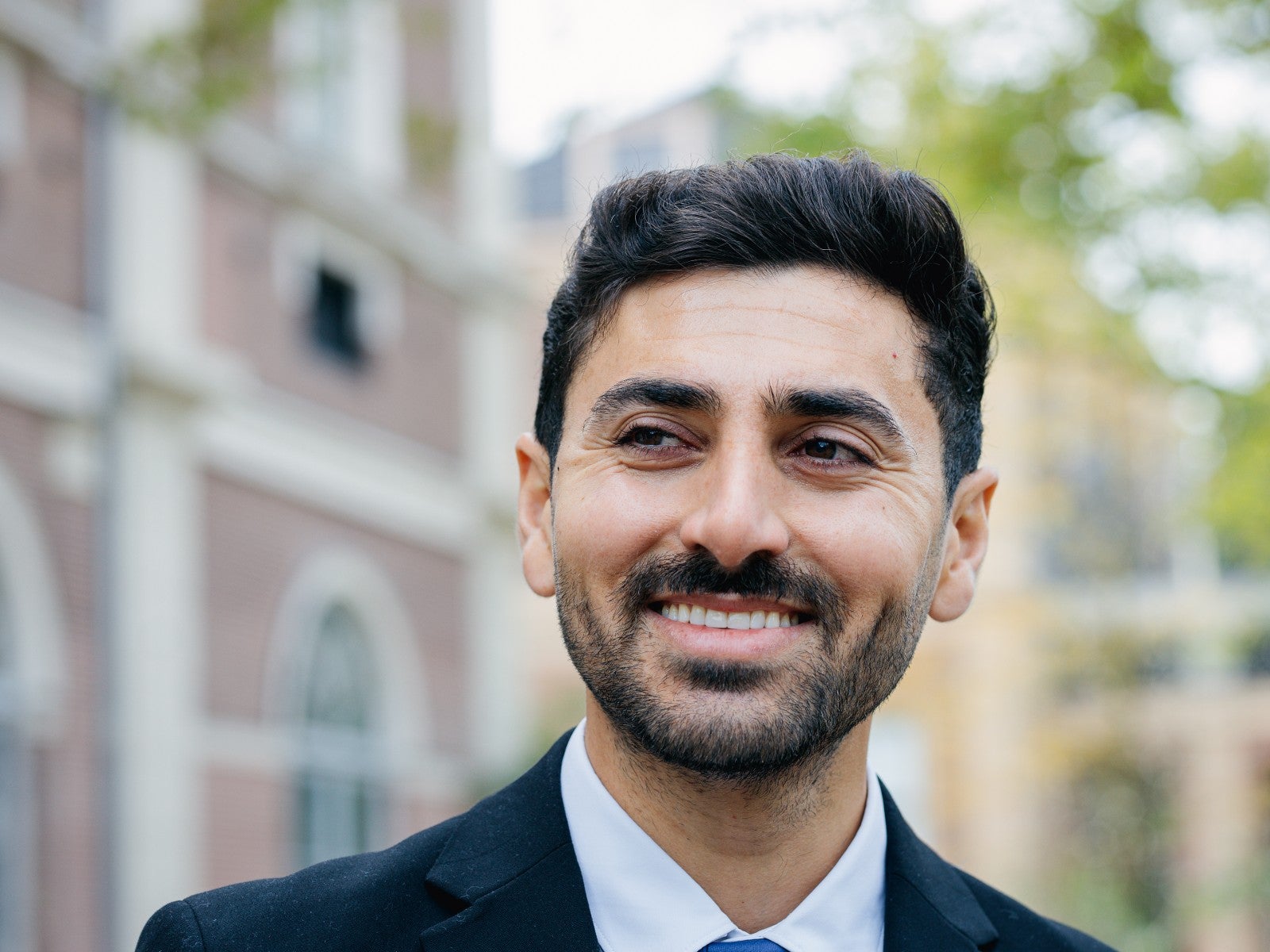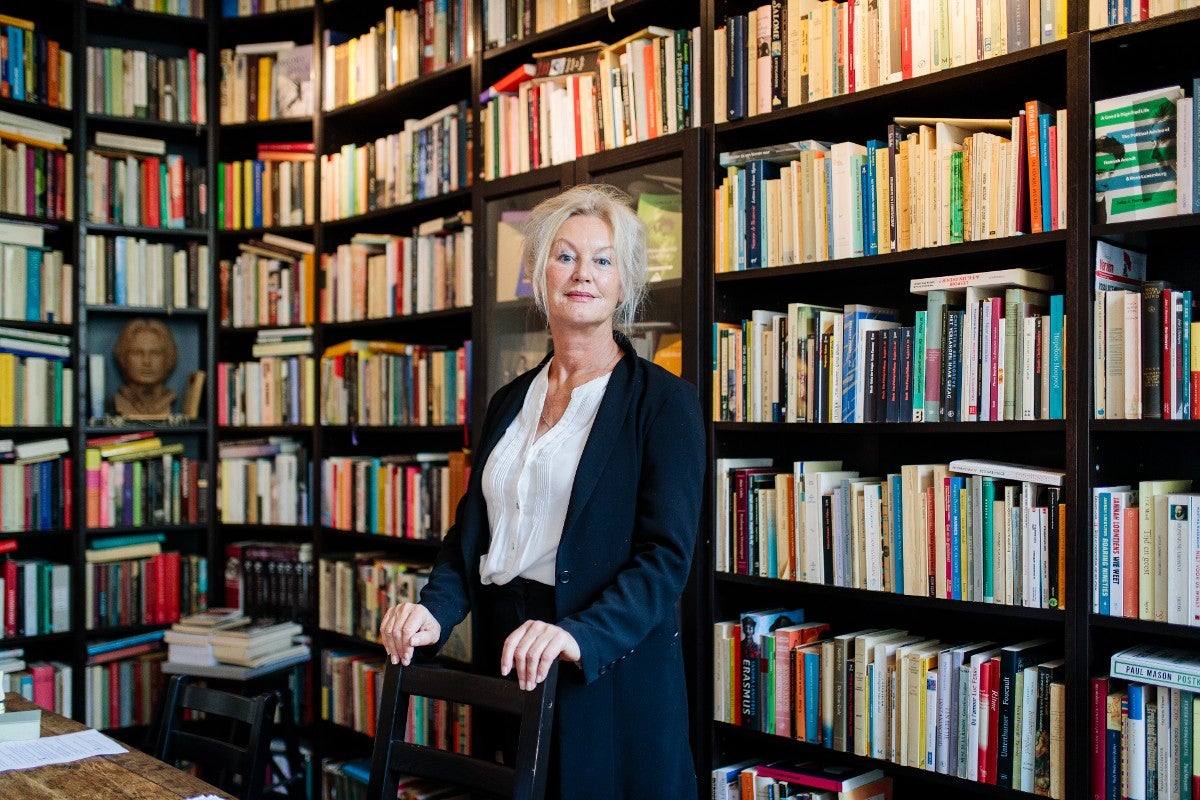Wahhab Hassoo (28) fled with his family from Iraq. Once in the Netherlands, he eventually reached the Vrije Universiteit Amsterdam through vocational education. Now, eleven years later, he is on the list for the Dutch parliamentary elections. „I enjoy it when people underestimate me.”
When we asked Hassoo for a suitable location for photography before the interview, he emailed back that it could be anywhere. „In Amsterdam, I already feel that freedom when I just cycle to the supermarket, or walk through the market.”
At least, that was the case until recently, he says thoughtfully several weeks later during the interview. „Since I started speaking out publicly - and not in an extreme way - I have faced threats. My parents are very worried. Sometimes they call me ten times a day, and if I don’t answer, they assume the worst. At the same time, they also say it's my choice. I resent them for that. It implies that in a democratic country like the Netherlands, threats are part of speaking out.”
So, your parents didn’t want you to go into politics?
„No. They were also not happy when I wanted to become a fighter pilot in the air force. I was seven when the Iraq War broke out. I saw planes circling above me. Becoming a pilot was, in my mind, the only way to help. Once in the Netherlands, that became my goal. I even followed a year of an Aviation programme at a university of applied sciences, but meanwhile, I became more involved in political issues."
Do you mean with the Netherlands Helps Yezidis Foundation?
„Yes. I give lectures about my own story to make the story of the Yezidis in Iraq more known. ISIS wanted to exterminate the Yezidis because of their religion: they are not Muslim. When American troops left Iraq, my father - who worked as an interpreter for the Americans - was no longer safe. He received a message that he was on a list and fled to the Netherlands in 2010. Once here, he applied for family reunification."
„I’m not advocating for more family reunification or more new Dutch citizens, but for the sustainability of processes."
„Still, it took another two years before I could follow him with my mother, brothers, and sister. During that time, we had to make a dangerous journey by bus from Northwest Iraq to Tehran several times to report to the embassy. One time to fill out a form, another time to provide DNA to prove he was our father. Sometimes we arrived, and the appointment was cancelled. Then we had to take a 28-hour bus ride back. I have advocated for the digitisation of this process. I’m not advocating for more family reunification or more new Dutch citizens, but for the sustainability of processes. That was successful for a while, but it has since been reversed.
How did you get to VU Amsterdam?
„I wanted to study. In Iraq, I was in my last year of high school. Before my family got a house in the Netherlands, we spent a bit over a year in an asylum seeker centre. From there, I had to take Dutch lessons as part of my integration course. I brought my certificates to the Netherlands, and they were stamped as equivalent to senior general secondary education, but they were not recognised here.
So, I started a welding course at vocational level 1. There’s nothing wrong with that, but it wasn’t for me. Meanwhile, I applied for jobs at supermarkets as a stock replenisher. Most didn’t hire me because my Dutch wasn’t good enough. Lidl did, and there I learned to speak better Dutch. Only when someone pointed out adult education to me, did I subsequently do pre-vocational secondary education, senior general secondary education, higher professional education, and university."
„When introducing myself in a new class, the teacher would say: ‘This is Wahhab, and he is from Iraq. He struggles with Dutch, help him.’"
„I often felt I had to fight against the 'refugee' label stuck to my forehead. When introducing myself in a new class, the teacher would say: ‘This is Wahhab, and he is from Iraq. He struggles with Dutch, help him.’ I felt I wasn’t good enough because I was a refugee, or because I didn’t speak the language well. Yes, I am a refugee, but I am not ashamed of it."
„Somewhere, I enjoy it when people underestimate me. I like to prove people wrong. I always immediately felt when ‘my value was determined’ based on my perspective. When that happens, I don’t rest until I have proven that person wrong and ensured they will never underestimate anyone again."

What was it like to study at VU Amsterdam without anyone in your family having gone to university?
„Studying at VU Amsterdam as a first-generation student was challenging. I had to figure out everything myself, and the culture in education was different from what I was used to. It was also difficult to gain access to the study itself. I was initially not admitted because I had a technical profile and therefore had to take a Dutch test, follow a refresher course. All of that took so much time and energy."
„There are many new Dutch who would like to work here but do not get access to the labour market."
„I found it a pity that I had to do so much for admission because someone might end up in such a situation. I think bureaucratic obstacles should not stand in the way if someone is well motivated. If it were up to me, it would be eased and made more accessible for everyone, especially newcomers. Speaking of shortages in healthcare or education: there are many new Dutch who would like to work here but do not get access to the labour market. Newcomers have to prove themselves again. Diplomas from their country of origin do not count."
What did you think of the political science programme?
„I mostly had a positive experience. Although I was in a large, overcrowded lecture hall, the lecturers were always very involved and approachable. They understood if I needed help or couldn’t be present. The first year was tough. I travelled three hours by train every day from Gelderland. Then Covid hit. I was living with my parents in a small house with many people. I had no place at home to study, the libraries were closed. All I did was study. Fortunately, I was able to find a room in Amsterdam."
„My last job interview was as a stock replenisher at Lidl, and now I suddenly had an interview for a place in the Dutch parliament."
„In Iraq, I would never have gone to university. Academic education was not accessible for Yezidis. My cousin was murdered because he went to university and they found out he was a Yezidi. In Iraq, I lived with my family on a mountain. I would probably have hardly been able to leave there. I would have had to work on a farm my whole life. Live very small and inconspicuously."
And now you are on the list of Pieter Omtzigt's party, New Social Contract.
„I never dared to dream it would go this fast. My last job interview was at Lidl, and now I suddenly had an interview for a place in the Dutch parliament. I had just finished my thesis a week before the interview. My family in Iraq is proud that I am eligible for election. They did ask how much I paid and who I knew. That’s their frame of reference. I am all the prouder that I am being democratically elected."
„I entered politics because I felt underrepresented and wanted to give a voice to the thousands of refugees resulting from the Iraq War. I am convinced that with my experience I can contribute to a better Netherlands for everyone."








